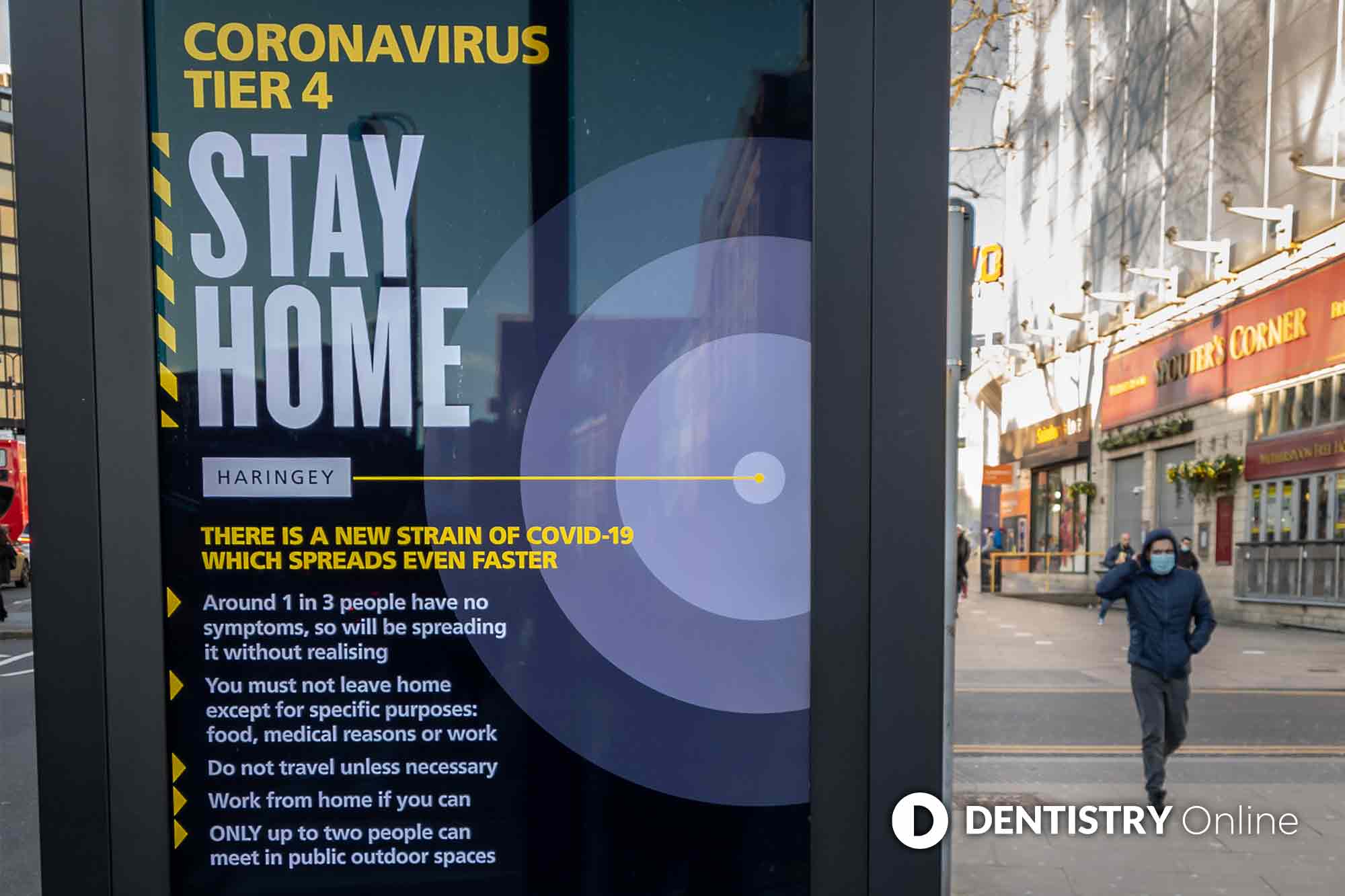 A dentist has warned of the mental health and financial impact on dentistry as new contract targets are imposed in the face of growing restrictions.
A dentist has warned of the mental health and financial impact on dentistry as new contract targets are imposed in the face of growing restrictions.
Mohsan Ahmad, chair of Greater Manchester Local Dental Network, has voiced concerns over new challenges faced by practices across the country.
Last month, the profession were informed that NHS dentistry will be tied to new targets from the new year.
From 1 January to 31 March 2021, practices providing 45% of their contracts will be seen to have delivered full contracted volume.
In her bulletin to the profession, chief dental officer for England, Sara Hurley, said the decision followed talks with the government over how to deliver ‘safe and reasonable’ care.
Pay the price
She wrote: ‘It is not yet business as usual. Updates to contractual arrangements set out below for quarter four reflect improved understanding of COVID-19’s impact on practice operations and increased access to care to meet patient needs and address backlogs of care.’
As of the 3 January, more than 366,000 people have tested positive for COVID-19 over the last seven days across the UK.
Mohsan fears smaller, single-surgery practices will pay the price in the coming weeks.
‘As soon as the news about Greater Manchester going into tier four came out, patients started cancelling their appointments,’ he said.
‘They weren’t very keen to come out. It massively affects your routine appointments as people feel like they can delay it and not have it done straight away. Then we have the issue of staffing as well. Some vulnerable staff felt like maybe they shouldn’t be carrying out face-to-face treatments.
‘Having had some feedback from our consultant in dental public health, she advised us on the current guidelines and that resolved things. Schools are having delayed term times in some areas. A few local authorities still don’t see dental staff as critical workers.
‘For a couple of our staff, we’ve had to write a letter – and copy in the BDA’s advice sheet – to emphasise that dental teams are critical workers and send it to their child’s school to make sure they can still send their kids in.’
Collaboration necessary
Mohsan believes his bigger practice will be able to survive the newly imposed contract arrangements – but fears his smaller one may suffer. As a result, he has collaborated with local dental committees to help practices make it through the new challenges.
He said: ‘I work in two dental practices, a big practice with six surgeries and a smaller practice with two surgeries. With the six surgery one, we can probably make it work. If there’s a shortfall or somebody goes off ill, we can probably between the other dentists catch up.
‘But the two surgery one is going to struggle. It’s going to be really important to keep excellent records of the pressures our dental practices face during this final quarter. Through my role with the local dental network, we have collaborated with our local dental committees and commissioners to get out there to practices that they need to record as much data as possible.
‘This includes if a staff member goes off or if a patient cancels. It needs putting together in a document for extenuating circumstances if they don’t achieve the 45%.’
But he says many local authorities are making changes to help ease the pressure on the profession.
Innovative measures
‘The big success for us out of this whole pandemic is how well the UDCs worked,’ he said.
‘They were a success story for NHS dentistry. People stepped up to offer services when other practices couldn’t for whatever reason.
‘Obviously, now if you’re a UDC and you have to deliver 45% plus see UDC patients, you will be having second thoughts about continuing as a UDC. Some commissioners have made local arrangements to protect the services being offered by UDCs. This includes; if you see a UDC patient, they will give you three UDAs rather than 1.2 UDAs.
‘In the whole of the north west, they’ve decided that UDCs won’t necessarily have to achieve the 45%. They still want you to aim to do as much as possible but as long as you’re offering one to two slots a day for patients, they will account for that if there’s any shortfall by the end of March.
‘The short-notice of the imposed targets has made things difficult, but it’s pleasing to see commissioners and dental teams thinking of innovative ways of continuing to offer a safe service to our patients.’
Lucky so far
Speaking about the overall impact on dentistry, Mohsan added: ‘When you take a step back and think about how things will change long-term, I feel like it will lead to some practices failing to meet the imposed targets that will have massive mental health and financial impacts. It’s likely to be the small practices.
‘How do we resolve this? Could some practices potentially collaborate together? Could they create a federation of two practices? It can seem like a good idea on paper but often leads into a minefield. For example, if personalities don’t get on or UDA values are different.
‘We’ve been lucky so far; If a staff member goes off, we can sometimes get another member of staff to fill-in from our other practices. As I’m sure small and large corporates can. But those stand-alone dental practices, will massively struggle. They’re the ones you have to worry for.
‘It makes me fear for single-surgery NHS practices, which we may start to see the end of, and potentially small two-surgery NHS practices.’
Follow Dentistry Online on Instagram to keep up with all the latest dental news and trends.


